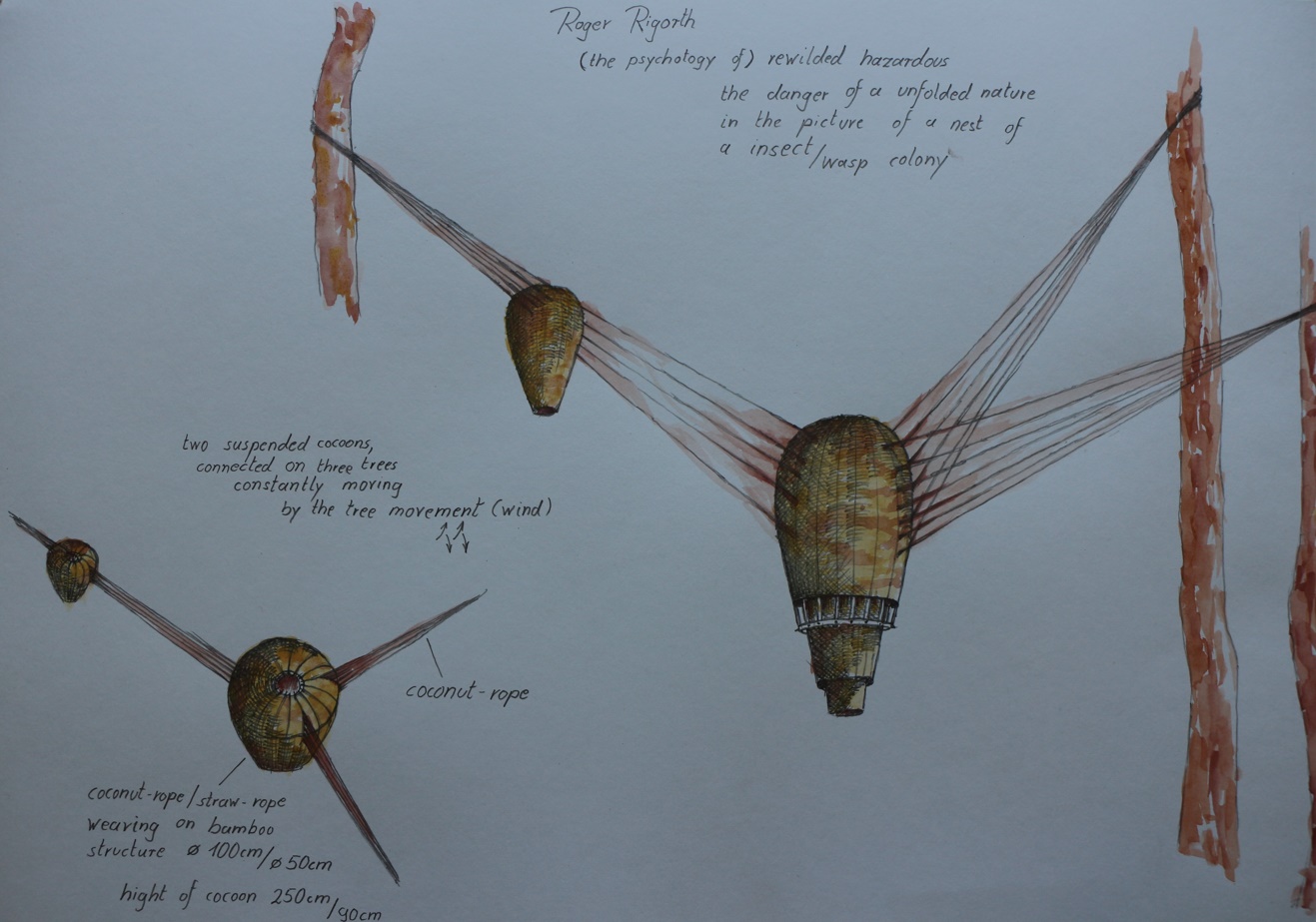[ 2021 ] 로저 리고스 (독일) Roger Rigorth (Germany)
페이지 정보
본문
로저 리고스 (독일)
Roger Rigorth (Germany)
<재야생화된 위험(의 심리) (The Psychology of) Rewilded Hazardous>

‘재야생화된 위험의 심리’는 우리가 재야생화를 상상할 때, 그것이 가진 영향에 대한 것이다. 자연 정복에 대한 인간의 첫 번째 반응은 두려움을 이기고, 예측 불가능한 자연의 위험을 이기는 것이었다. 이후 인간은 자연을 자원의 원천으로 이해하게 되었다. 그리고는 세계적으로 이러한 자연의 기초가 무너지는 것을 인식하기에 이르렀다. 두려움은 우리의 삶을 떠난 것이 아니라 돌이킬 수 없는 인간의 본성인 것 같다. 그러면 처음에 자연을 길들이고자 한 충동은 잘못된 것이었을까? 내부적 두려움이 행동주의를 이끄는 것보다 두려움과 위험을 외부 세계에 투사하는 것이 더 수월했다. 재야생화는 재위험화(redangering)와 함께 저항적인 심리를 발전시킬 기회와 밀접한 관련이 있다.
둥지와 고치로 대표되는 곤충의 군집, 가령 말벌 떼는 위험과 두려움의 모습이다. 크기가 커지면 심리적 힘도 배가된다. 끊임없는 움직임의 효과와 더불어 그것은 살아있는 모습이다. 움직임은 나무 세 그루를 연결하여 만들어진다. 바람에 의한 나무의 움직임이 말벌의 집/고치에 전달된다. 구조물은 “숨쉬기” 시작한다.
The psychology of a rewilded hazardous plays with the impact of a consequently imagined rewilding. The first reflex on concurring nature was fighting down fears and the danger of a unpredictable nature. This was later overlapped by the understanding of nature as a source of resources of course until the point we reached now with the global destruction of natural bases. Fears did not left our lives, they seem to be a irredeemable human nature. So was the first domestication impulse towards nature addressed wrongly? Instead of a inner fear driven aktivisem it was easier to project fear and hazard to the outer world. Rewilding goes hand in hand with redangering and the chance to develop a resistant psychology.
A insect colony, wasps maybe, represented by their nest/cocoon is a picture of hazard and fear. Bigger in size even multiply the psychological force. With the effect of constant movement it appears alive. The movement is generated by the connection on three trees. With the tree movement by the wind it got transfered towards the wasp hive/cocoon. The structure starts to “breath”.
- 이전글로저 톰슨 (뉴질랜드) Roger Thompson (New Zealand) 21.08.30
- 다음글로시오 아센시 (스페인) Rocío Asensi (Spain) 21.08.30
댓글목록
등록된 댓글이 없습니다.


